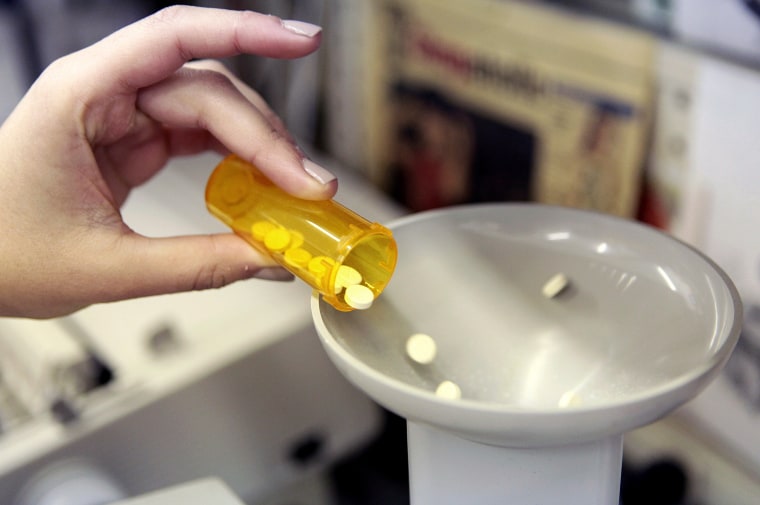As divisive as health care debates can be on Capitol Hill, making prescription drugs more affordable is the sort of priority that's supposed to garner bipartisan support.
At least in theory, that is. In practice, as we were reminded yesterday, it didn't quite work out that way.
The House on Thursday passed a suite of health care bills that tied shoring up the Affordable Care Act to lowering drug prices, as Democrats tried to hold Republicans to their campaign promises to secure coverage for pre-existing medical conditions and rein in the cost of prescription medicine. [...]By combining the bills to shore up the Affordable Care Act with several bipartisan measures to address high drug prices, Democrats had hoped to lure in some Republican support. But the minority party did not bite, calling the package "a bailout" for the health law and instead introducing a Republican bill that included only the drug-pricing measures, plus an extension of funding for community health centers and the National Health Service Corps.
The bill at hand was relatively modest, combining a few provisions to make it easier for generic drugs to enter the market, including restrictions on anti-competitive pharmaceutical behavior. In all, the legislation, if passed, would create savings of about $4 billion over the next decade.
Democrats designed the bill to apply those savings to related health care priorities, including bolstering funding for state-run ACA marketplaces.
Republicans said they were prepared to support the provisions related to lowering the cost of medications, but they weren't willing to go along with a bill that strengthened "Obamacare." Democrats responded that the GOP's irrational hatred for the Affordable Care Act didn't make sense, and Republicans don't really want to find themselves on the wrong side of a fight over making prescription drugs more affordable.
The House minority balked anyway. When the dust settled, the bill passed with relative ease -- 234 to 183 -- but only five House Republicans broke ranks and supported the legislation.
All of this comes a week after the chamber also took up the "Protecting Americans with Preexisting Conditions Act," which was a proposal to undo the Trump administration's policy that made it easier for consumers to buy worse coverage plans through state exchanges.
That bill also passed easily in the Democratic-led House, but only four Republicans voted for it.
If the Democratic leaders' goal is to demonstrate their commitment to passing progressive health care legislation that would help American consumers, they're succeeding. If their goal was to put Republicans on the spot, forcing them to weigh in on popular proposals, and hoping to use their votes against them in the next election cycle, Dems are doing that, too.
But if the goal is to advance legislation that's likely to become law, everyone involved should start lowering their expectations. The Republican-led Senate isn't doing much in the way of legislating anymore, and no one seriously believes yesterday's bill will get any consideration in the upper chamber.
